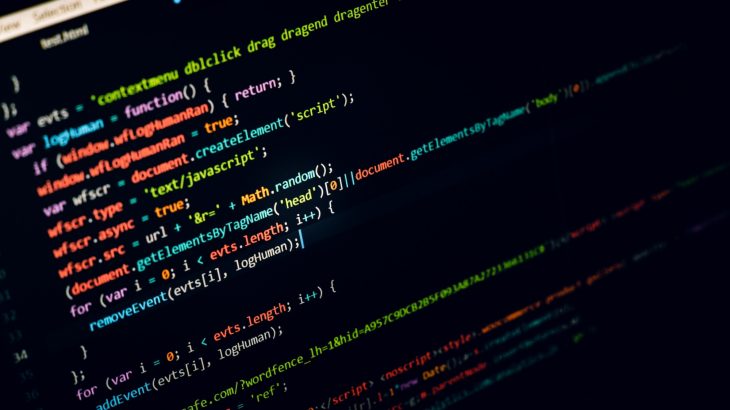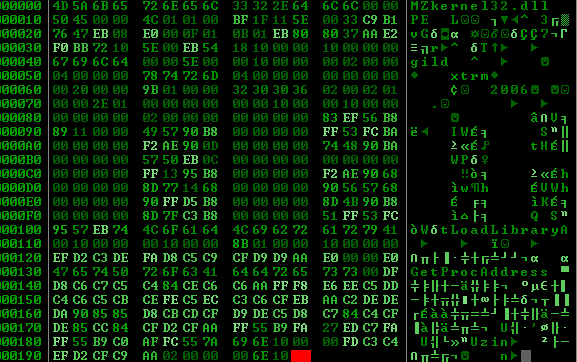
Coding, the language of technology, is the driving force behind our digital world. It empowers us to create, innovate, and shape the future. While coding may seem like a complex and serious endeavor, there are plenty of fun and captivating aspects to explore. In this comprehensive article, we will embark on a journey through the realm of coding and uncover fascinating fun facts that will not only entertain but also inspire you to delve deeper into this exciting field. So, fasten your seatbelts, and let’s dive into the world of coding fun facts!
What is Coding?
Before we venture into the realm of coding fun facts, let’s understand the essence of coding itself. Coding is the process of creating instructions or algorithms that computers can understand and execute. It involves using programming languages to develop software, websites, apps, and more. Through coding, we can bring ideas to life and build technological solutions that shape our modern world.
First Programming Language
In the 19th century, Ada Lovelace, an English mathematician, is credited with writing the first algorithm intended for implementation on Charles Babbage’s Analytical Engine. Her visionary work laid the foundation for modern programming. As such, she is often regarded as the world’s first computer programmer.
Modern Coding
The modern concept of coding, as we know it today, evolved with the development of electronic computers in the mid-20th century.

Binary System
The invention of the binary system by Gottfried Wilhelm Leibniz, a German philosopher and mathematician, laid the foundation for digital coding. The binary system represents information using only two digits: 0 and 1.
Debugging Origins
The term “debugging,” which refers to the process of finding and fixing errors in code, originated from an incident involving a literal bug. In 1947, computer scientist Grace Hopper found a moth trapped in a relay of the Harvard Mark II computer, and she taped it to the logbook, coining the term “debugging.”
Fortune 500 Companies
In the digital age, coding skills have become highly sought after. Surprisingly, approximately one-third of the companies on the Fortune 500 list were founded by individuals with coding backgrounds, highlighting the significant impact coding has on entrepreneurship and innovation.
The Apollo Guidance Computer
The computer that guided the Apollo space missions to the moon had only 64 kilobytes of memory. In comparison, modern smartphones have hundreds of thousands of times more memory capacity.
The First Computer Bug
While the term “bug” is commonly used in coding to describe an error, the first documented computer bug was an actual moth found in a relay of the Harvard Mark II computer. The term “bug” stuck as a metaphor for coding errors.
Easter Eggs
Developers often add hidden surprises known as “Easter eggs” in software, games, and websites. These Easter eggs can be secret messages, mini-games, or humorous elements that add an element of fun and discovery for users.
COBOL
In the 1950s, computer scientist Grace Hopper led the team that created COBOL (Common Business-Oriented Language). COBOL enabled the development of business applications and remains in use today, showcasing the longevity of coding innovations.
The Internet and HTML
The birth of the internet in the late 20th century gave rise to the need for coding languages that could create webpages. HTML (Hypertext Markup Language) emerged as the foundational language for structuring and presenting content on the World Wide Web.
Fortran
Developed in the 1950s, Fortran (short for “Formula Translation”) was one of the first high-level programming languages. It revolutionized scientific and numerical computing, paving the way for future programming languages.
C
C, created in the 1970s, is a powerful and widely used programming language. It has influenced the development of many other languages and serves as the foundation for systems programming.
Python
Python, known for its simplicity and readability, takes its name from the British comedy group Monty Python. The language’s creator, Guido van Rossum, was a fan of the group and wanted a fun name for his new programming language.
JavaScript
JavaScript, a popular language for web development, has no relation to Java. Its name was chosen to ride the wave of Java’s popularity in the 1990s.
Esoteric Languages
Esoteric programming languages are intentionally designed to be obscure and challenging to use. Some examples include “Brainfuck,” “Whitespace,” and “Chef,” which use unconventional syntax and instructions.
Assembly Language
Assembly language is a low-level programming language that provides a direct correspondence between the language’s instructions and the computer’s hardware architecture. It requires a deep understanding of the computer’s internal workings.
The Matrix
The iconic film “The Matrix” popularized the idea of a virtual reality world and introduced the concept of “hacking” into the mainstream. The famous “green code rain” scenes depict symbols resembling falling code.

“Mr. Robot”
The TV series “Mr. Robot” captivated audiences with its realistic portrayal of hacking and cybersecurity. The show’s protagonist, Elliot Alderson, showcases his coding skills as he navigates the dark underbelly of society.
“Ready Player One”
The novel and subsequent film adaptation, “Ready Player One,” depicts a dystopian future where coding and virtual reality play pivotal roles in the protagonist’s quest for an elusive prize.
Coding Toys
In recent years, coding toys for children, such as LEGO Mindstorms and littleBits, have gained popularity. These toys introduce coding concepts in a fun and interactive way, inspiring the next generation of coders.
Conclusion
Coding is a fascinating and dynamic field that holds countless surprises and fun facts. From the origins of coding to the influence it has on popular culture, there is no shortage of intriguing details to explore. Whether you’re a seasoned programmer or a curious beginner, these coding fun facts offer a glimpse into the captivating world of programming. So, embrace your curiosity, embark on your coding journey, and unlock the limitless possibilities that await in this ever-evolving realm.
Frequently Asked Questions (FAQs)
Do I need a computer science degree to learn coding?
No, a computer science degree is not required to learn coding. Many successful programmers are self-taught or have taken alternative educational paths. There are numerous online resources, coding boot camps, and community programs that provide opportunities to learn coding skills.
Which programming language should I learn first?
The choice of the first programming language depends on your goals and interests. Python is often recommended for beginners due to its simplicity and versatility. However, other languages like JavaScript, Java, and C++ also have their advantages and may be more suitable for specific applications.
Is coding only for mathematically inclined individuals?
While coding involves logical thinking and problem-solving, it is not exclusively for mathematically inclined individuals. Coding encompasses creativity, critical thinking, and the ability to break down complex problems into manageable steps. Individuals from diverse backgrounds can excel in coding.
Can coding lead to a successful career?
Yes, coding can lead to a successful and rewarding career. With the increasing demand for technology professionals, there are ample opportunities in software development, web development, data science, cybersecurity, and more. Continuous learning and keeping up with industry trends are essential for a thriving career in coding.
How can I stay motivated while learning to code?
Learning to code can be challenging at times, but staying motivated is key. Set clear goals, break down complex projects into smaller tasks, celebrate your progress, and seek support from coding communities and mentors. Engaging in projects that align with your interests can also boost motivation and make the learning process more enjoyable.
Was this page helpful?
Our commitment to delivering trustworthy and engaging content is at the heart of what we do. Each fact on our site is contributed by real users like you, bringing a wealth of diverse insights and information. To ensure the highest standards of accuracy and reliability, our dedicated editors meticulously review each submission. This process guarantees that the facts we share are not only fascinating but also credible. Trust in our commitment to quality and authenticity as you explore and learn with us.
